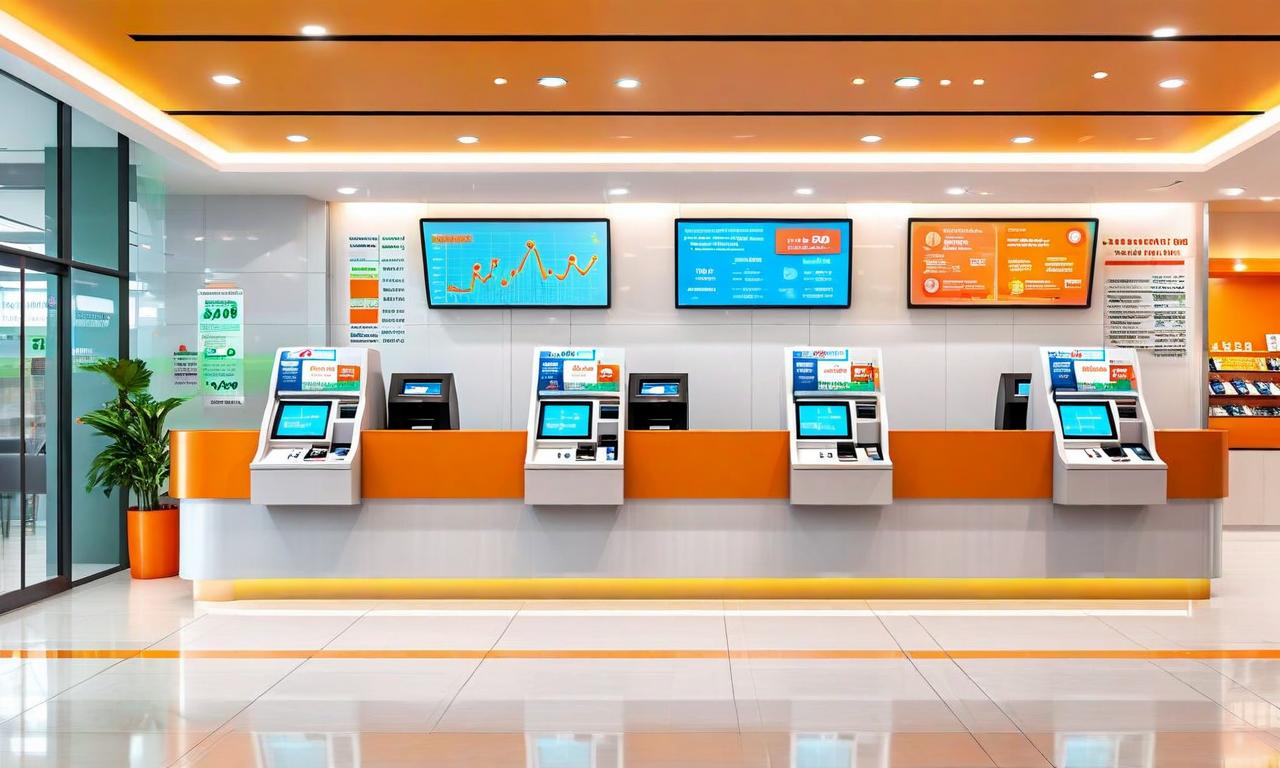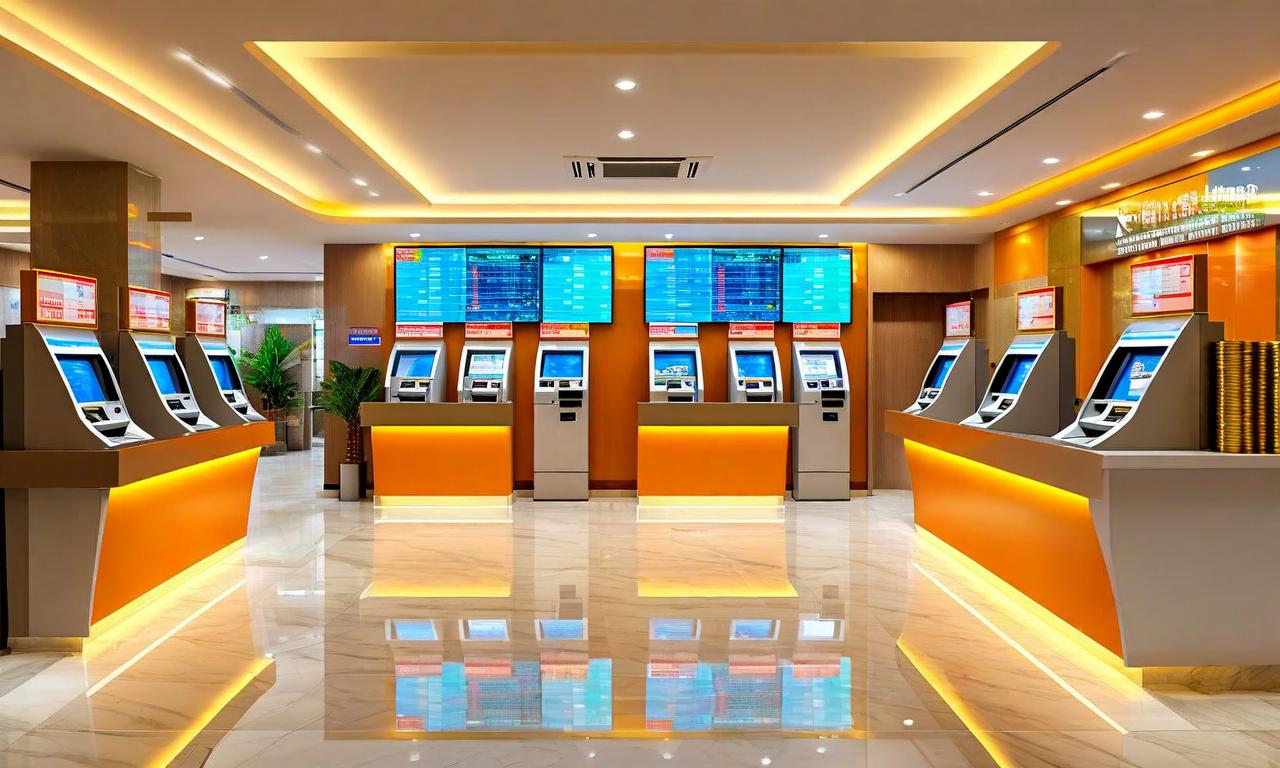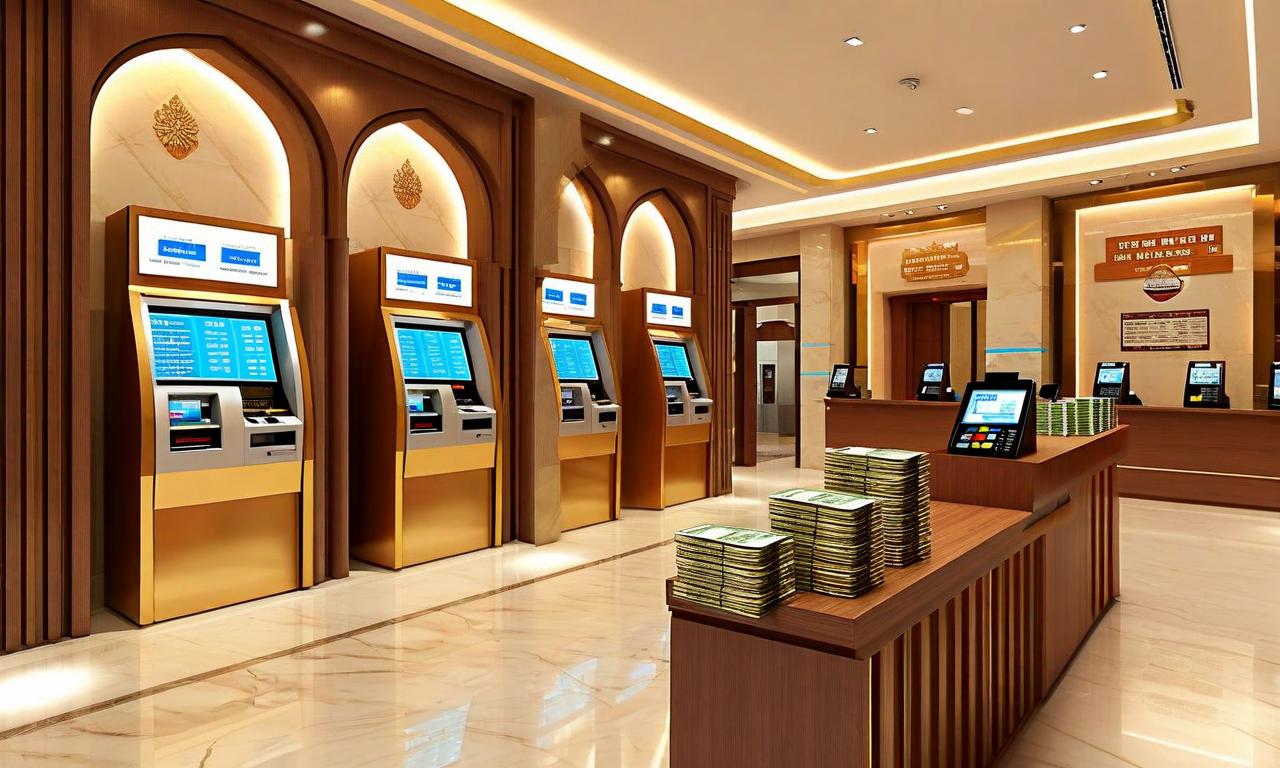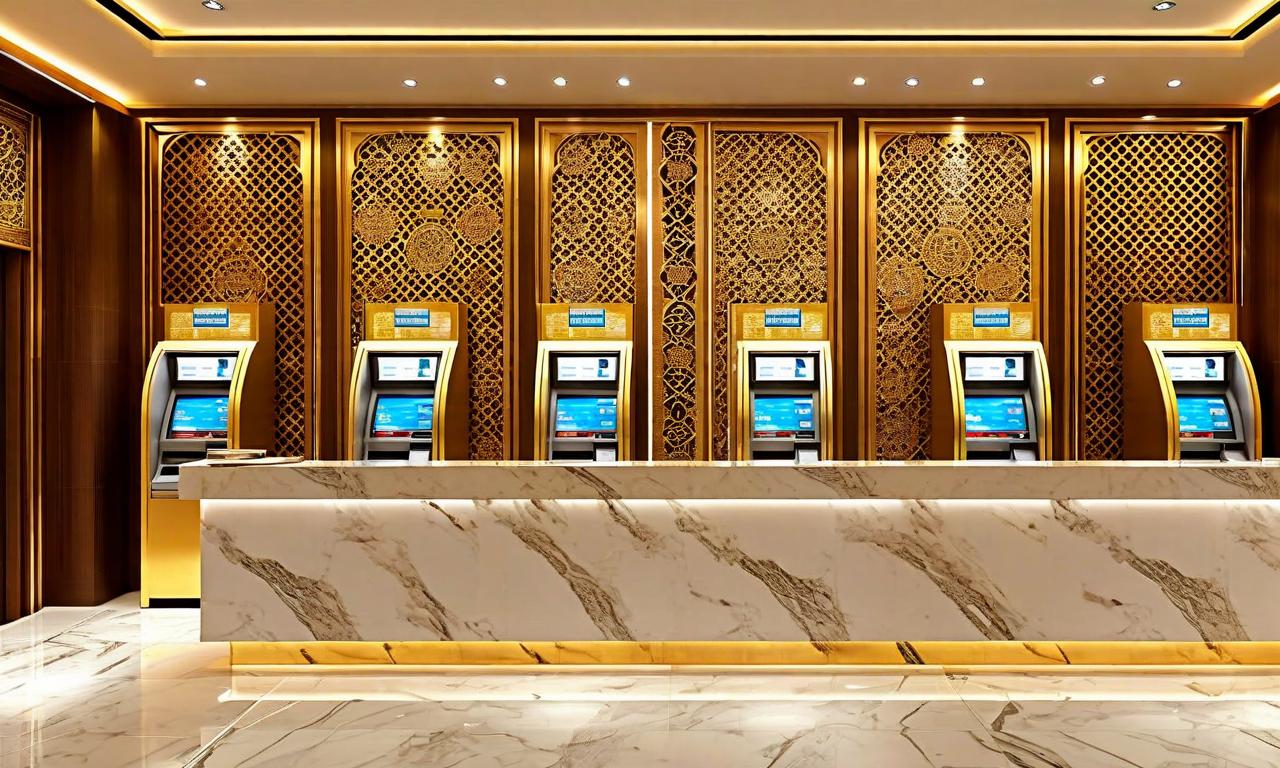DCB Bank Reports Consistent Growth and Improved Efficiency, Targets 18-20% Annual Growth
DCB Bank reports steady growth with a 21.02% increase in advances and 20.13% in deposits over the last six quarters. The bank has improved cost efficiency, reducing its cost-to-average assets ratio to 2.59%. It aims for 18-20% annual growth in the next two years, focusing on expanding from a lender to a full-service banker for self-employed and MSME segments. Key strategies include deposit growth, technology adoption, and capital conservation. Future targets include maintaining a capital adequacy ratio of 15.50% to 17.00% and achieving a Return on Equity of 13.50% to 14.50%.

*this image is generated using AI for illustrative purposes only.
DCB Bank , a prominent player in the Indian banking sector, has reported consistent growth and improved operational efficiency in its recent financial results. The bank has set ambitious targets for the next two years, aiming for annual growth of 18-20% while maintaining a strong capital position.
Consistent Growth and Improved Efficiency
DCB Bank has demonstrated steady progress in key financial metrics over the past six quarters:
- Advances Growth: The bank has maintained an average growth rate of 21.02% in advances over the last six quarters, slightly lower than its 12-quarter average of 21.17%.
- Deposits Growth: Deposits have grown at an average rate of 20.13%, nearly matching the 12-quarter average of 20.50%.
- Cost Efficiency: The bank has significantly improved its cost-to-average assets ratio, reducing it by 32 basis points from peak levels to 2.59%.
- Credit Cost: DCB Bank has consistently maintained its credit cost below 40 basis points, indicating strong asset quality management.
Financial Performance Highlights
| Metric | 12-Quarter Average | Last 6-Quarter Average |
|---|---|---|
| Advances Growth | 21.17% | 21.02% |
| Deposits Growth | 20.50% | 20.13% |
| Yield on Advances | 11.46% | 11.37% |
| Cost of Deposits | 6.63% | 7.11% |
| Net Interest Margin | 3.94% | 3.28% |
| Gross NPA | 1.87% | 3.10% |
| Credit Cost | 0.50% | 0.35% |
| Cost to Average Assets | 2.72% | 2.59% |
| Return on Equity | 11.30% | 12.32% |
Strategic Focus and Future Outlook
DCB Bank's management has outlined several key strategies and targets for the coming years:
Transition from Lender to Full-Service Banker: The bank aims to expand its role from a lender to a comprehensive financial services provider for self-employed and MSME segments.
Deposit Growth and Cost Reduction: A major focus is on building deposits while decreasing the cost of deposits, which should improve the bank's net interest margin.
Technology Adoption: DCB Bank is leveraging technology to enhance operational efficiency, with initiatives such as digital onboarding, paperless processes, and automated testing tools.
Capital Conservation: The bank is focusing on expanding assets while conserving capital, as evidenced by the decreasing trend in its risk-weighted assets to total assets ratio.
Cross-Selling Opportunities: With 76% of customers currently using only one product, the bank sees significant potential for cross-selling additional services.
SME Focus: DCB Bank is creating a business horizontal to cater to the 3-10 crore SME segment, offering fully secured, sole banking relationships.
Future Targets
For the next two years, DCB Bank has set the following targets:
- Annual growth of 18-20%
- Capital adequacy ratio between 15.50% to 17.00%
- Net Interest Income to Average Assets: 3.15% to 3.20%
- Fee Income to Average Assets: 1.00% to 1.05%
- Cost to Average Assets: 2.45% to 2.50%
- Credit Cost to Average Assets: 0.40% to 0.45%
- Return on Assets: 0.92% to 1.00%
- Return on Equity: 13.50% to 14.50% (without considering any additional capital raising)
DCB Bank's consistent performance and strategic initiatives position it well for future growth in the competitive Indian banking landscape. The bank's focus on the self-employed and MSME segments, coupled with its emphasis on technology and operational efficiency, may provide a strong foundation for achieving its ambitious targets in the coming years.
Historical Stock Returns for DCB Bank
| 1 Day | 5 Days | 1 Month | 6 Months | 1 Year | 5 Years |
|---|---|---|---|---|---|
| +2.12% | +1.74% | +4.78% | +62.66% | +81.98% | +71.89% |




































